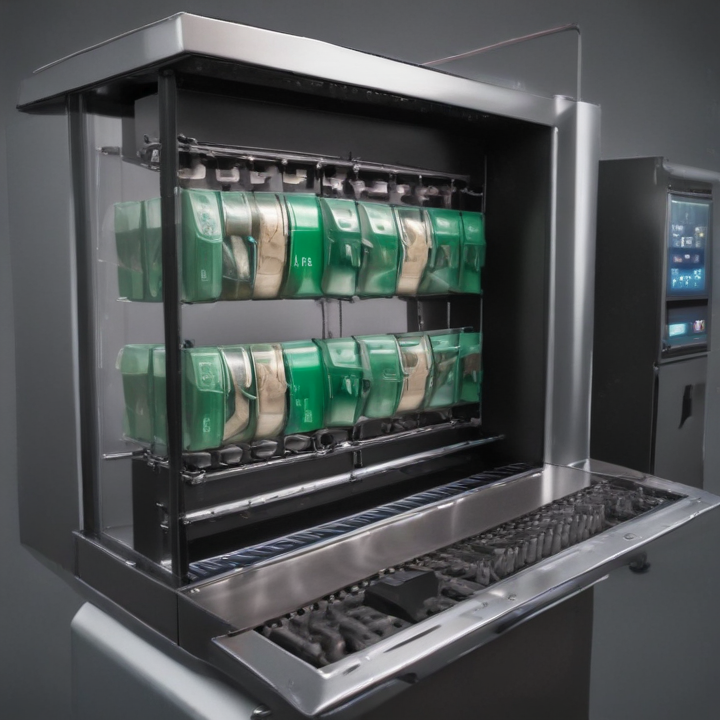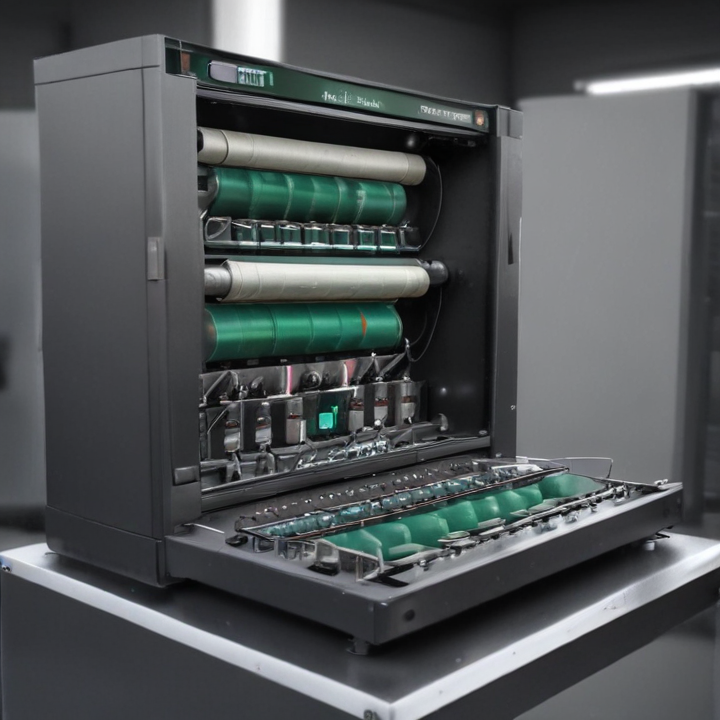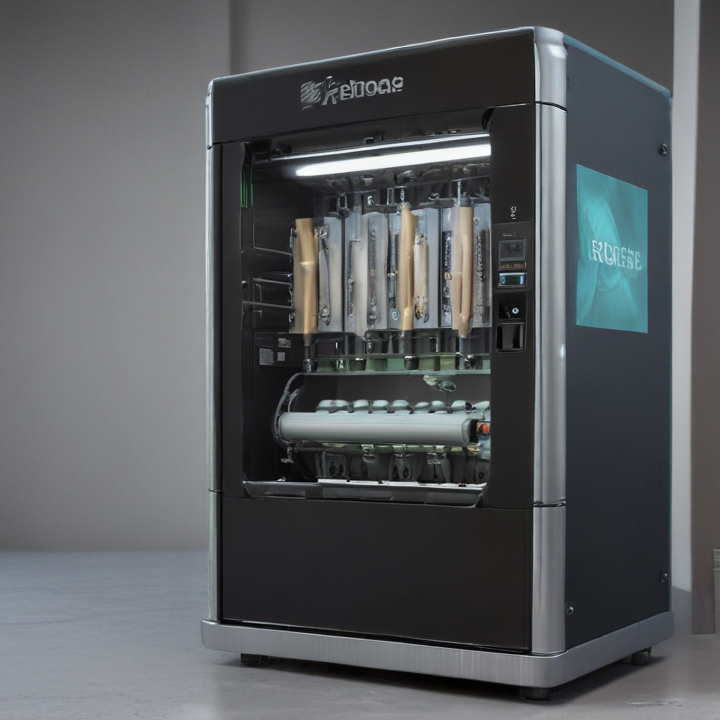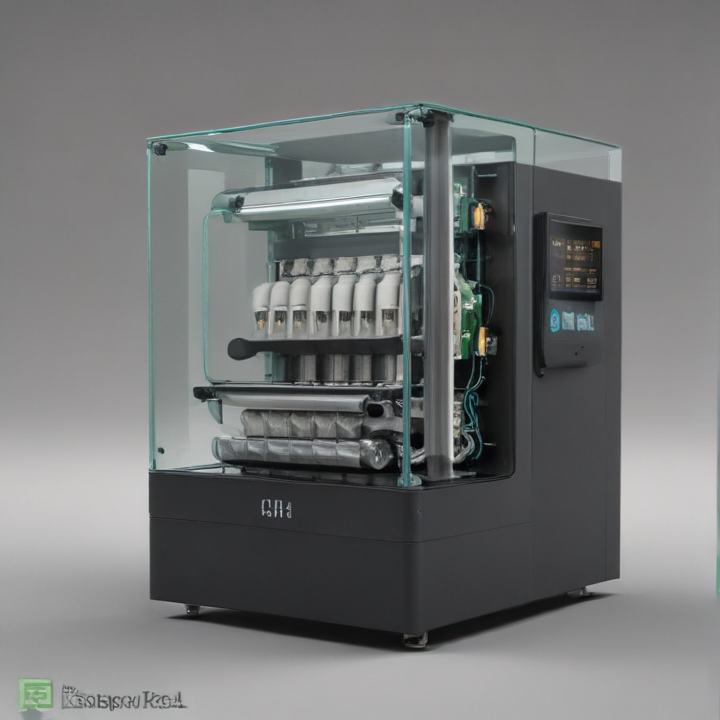List Technical Parameters of “automated pre roll machine”
An automated pre-roll machine is designed to efficiently produce consistent, high-quality pre-rolled cannabis joints. Below are the key technical parameters:
1. Production Speed:
– Units per Hour: Measures the number of pre-rolls the machine can produce in an hour.
– Cycle Time: Time taken to complete one pre-roll.
2. Capacity:
– Hopper Size: Indicates the volume of cannabis the machine can hold.
– Pre-Roll Size: Compatible pre-roll sizes (e.g., 0.5g, 1g).
3. Accuracy & Consistency:
– Filling Accuracy: Ensures consistent weight and density of each pre-roll.
– Vibration Mechanism: Used to evenly distribute cannabis within the cone.
4. Cone Compatibility:
– Cone Size Range: The diameters and lengths of cones that the machine can accommodate.
– Material Handling: Capable of working with different paper materials and types.
5. Automation Features:
– User Interface: Touchscreen controls for ease of operation.
– Sensors: Detects and prevents jams or misfeeds.
– Programmable Settings: Allows adjustments for different recipes and pre-roll sizes.
6. Power Requirements:
– Voltage & Frequency: Typical industrial standards, such as 220V, 50/60 Hz.
– Power Consumption: Energy usage per operational hour.
7. Build Quality:
– Material: Stainless steel or other durable materials.
– Dimensions & Weight: Overall machine size and transport weight.
8. Maintenance:
– Cleaning Features: Easy disassembly and cleaning protocols.
– Component Lifecycle: Durability and replacement cycle of critical parts.
9. Regulatory Compliance:
– Certifications: FDA, GMP compliance, or other relevant certifications.
– Emission Standards: Meets local and international environmental regulations.
10. Connectivity:
– Data Logging: Ability to track production metrics.
– Remote Access: Connectivity options like Wi-Fi or Ethernet for updates and support.
These parameters provide essential insights for assessing the performance, efficiency, and suitability of an automated pre-roll machine for specific production environments.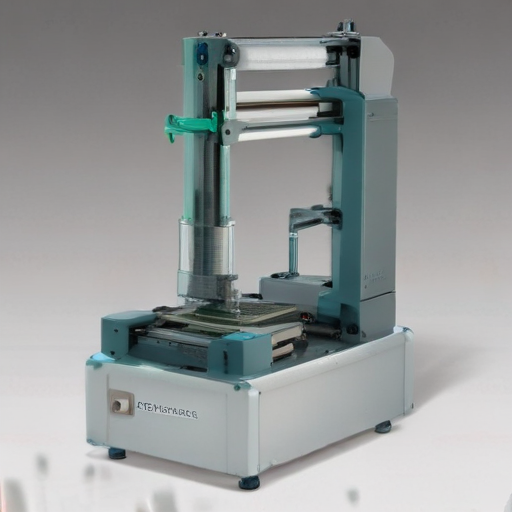
List Product features of “automated pre roll machine”
An automated pre-roll machine offers a variety of features designed to enhance efficiency, consistency, and quality in the production of pre-rolled cannabis products. Here are some key features:
1. High Throughput: Capable of rolling hundreds or even thousands of pre-rolls per hour, significantly increasing production capacity and reducing labor costs.
2. Precision Filling: Ensures consistent packing density, avoiding issues like uneven burning and ensuring a smooth smoking experience.
3. Customizable Settings: Adjustable parameters for different strains, sizes, and types of pre-rolls, allowing versatility in product offerings.
4. User-Friendly Interface: Intuitive controls and displays for easy operation, often featuring touchscreen interfaces and programmable settings.
5. Automated Weighing: Integrated scales for precise weight measurement, ensuring uniformity and compliance with legal standards.
6. Quality Control Mechanisms: In-built sensors and cameras for detecting and rejecting imperfect pre-rolls, maintaining high product standards.
7. Modular Design: Option to add or remove components like filters, cones, or packaging modules, providing flexibility for different production needs.
8. Fast Changeover: Quick and easy transitions between different production runs, minimizing downtime.
9. Compact Footprint: Designed to occupy minimal floor space while maximizing output, ideal for operations with limited space.
10. Material Handling Systems: Efficient distribution and handling of raw materials, reducing waste and optimizing resource use.
11. Safety Features: Equipped with emergency stop buttons and protective guards to ensure operator safety.
12. Energy Efficiency: Designed for low power consumption, making it both economical and environmentally friendly.
13. Remote Monitoring and Diagnostics: Capability for remote access to monitor performance and diagnose issues, ensuring minimal disruptions.
14. Durability: Built with high-quality materials to withstand constant use, ensuring long-term reliability and low maintenance.
These features make automated pre-roll machines a valuable asset for cannabis producers looking to scale their operations efficiently and maintain high-quality standards.
List Application of “automated pre roll machine”
Applications of Automated Pre-Roll Machines
1. Commercial Cannabis Production: Automated pre-roll machines are widely adopted in the cannabis industry to streamline the production process. These machines can efficiently roll large quantities of joints, maintaining consistent quality and standardization, which is essential for meeting regulatory requirements and customer satisfaction.
2. Pharmaceutical Manufacturing: In the pharmaceutical sector, automated pre-roll machines can be adapted for rolling medicinal herbs or tobacco used in therapeutic applications. Ensuring uniform dosage and quality control, these machines can support the production of inhalable medical treatments.
3. Tobacco Industry: Cigarette manufacturing has long benefited from automation. Automated pre-roll machines help major tobacco companies produce cigarettes at high speed, ensuring each cigarette is uniform in size, shape, and tobacco content, which is crucial for brand consistency and reliability.
4. Research and Development: In laboratories, automated pre-roll machines can be used to create sample batches for research purposes. Consistency in rolled products is critical for conducting controlled experiments and analyzing outcomes without the variability introduced by manual rolling.
5. Hospitality and Event Management: For events where pre-rolled products (such as cannabis or herbal joints) are part of the hospitality services, automated machines ensure quick and efficient production, catering to high-demand scenarios without compromising on quality.
6. Retail and Dispensaries: Small to medium-sized cannabis dispensaries use automated pre-roll machines to maintain a steady inventory of pre-rolled joints, enhancing customer service by providing ready-to-purchase, high-quality products efficiently.
7. Custom and Specialty Products: Businesses offering custom or specialty smoking products can use automated pre-roll machines to produce uniquely flavored or blended pre-rolls, scaling their production while maintaining artisanal quality through precise control settings on the machines.
In conclusion, the application of automated pre-roll machines spans multiple industries, significantly enhancing production efficiency, product consistency, and quality control while catering to both mass production needs and specialized markets.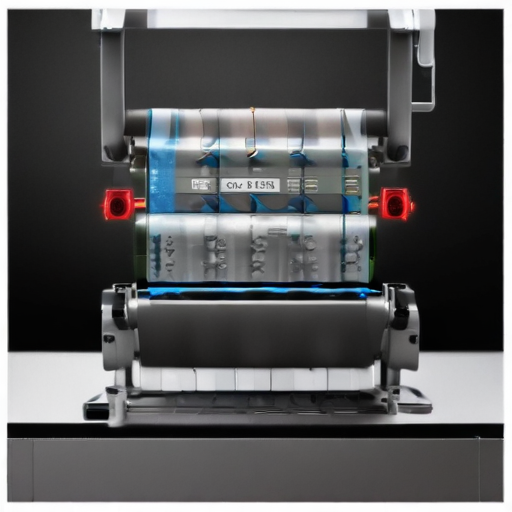
List Various Types of “automated pre roll machine”
Automated pre-roll machines have revolutionized the cannabis industry by increasing efficiency, consistency, and hygiene in pre-roll production. Here are some of the various types:
1. Twist Closing Machines: These machines focus on efficiently twisting the ends of pre-rolled cones after they are filled, ensuring a secure and aesthetically pleasing closure.
2. Vibratory Fillers: Using vibration to distribute cannabis evenly, these machines help ensure a consistent fill per pre-roll cone. They are especially useful for maintaining uniformity across large batches.
3. Cone Filling Machines: These devices automate the process of placing ground cannabis into pre-formed cones, speeding up production while ensuring accuracy and reducing wastage.
4. Packing Machines: Focusing on compacting the cannabis inside the pre-roll to ensure consistent density, these machines can help improve the quality and burn rate of the end product.
5. Mixing and Weighing Machines: These integrated systems can mix different strains and automatically weigh precise amounts before transferring the contents to filling machines, ensuring consistent dosing.
6. Multi-Functional Systems: Combining features like filling, twisting, packing, and sealing, these comprehensive machines aim to automate the entire pre-roll production process, minimizing human labor and maximizing efficiency.
7. Small Batch Fillers: Ideal for smaller operations or specialized strains, these machines are tailored to handle smaller quantities but promise accuracy and consistency.
8. Commercial Pre-Roll Machines: Designed for large-scale operations, these heavy-duty machines can produce thousands of pre-rolls per hour, ideal for meeting high demand with consistency.
Automated pre-roll machines come in various forms to cater to different needs and scales of production, making them indispensable tools in modern cannabis manufacturing.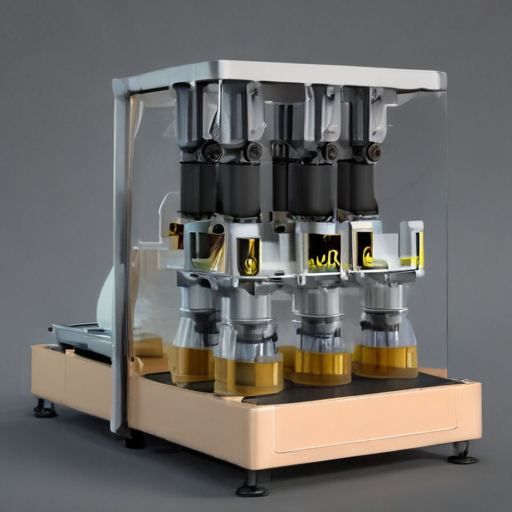
Custom Manufacturing Options for automated pre roll machine
When considering custom manufacturing options for an automated pre-roll machine, several key features and components can be tailored to meet specific needs. Here are some customizable options:
1. Material Handling System:
– Adjustable Hopper Size: Allows for varying capacities based on production needs.
– Conveyance Systems: Custom belts or vibratory systems tailored for efficient material flow.
2. Filling Mechanism:
– Variable Speed Control: Adaptable speed settings for different cannabis strain densities.
– Precision Filling: Customized nozzles and augers for accurate filling.
– Waste Reduction: Mechanisms to ensure minimal material loss.
3. Rolling Capabilities:
– Custom Rolling Papers: Machines can be adjusted to accommodate different sizes and types of rolling papers.
– Cone and Cylinder Sizes: Options for various pre-roll dimensions.
4. User Interface:
– Touchscreen Display: Intuitive and customizable UI for easy operation.
– Remote Monitoring: Integration with smart systems for real-time production monitoring.
5. Automation and Robotics:
– Robotic Arms: For precise handling and placement of pre-roll papers.
– Automated Quality Control: Sensors and cameras for defect detection and weight accuracy.
6. Safety and Compliance:
– Compliance with Regulations: Ensure the machine meets local and international safety standards.
– Sanitization Features: Easy-to-clean components that adhere to health guidelines.
7. Modularity and Scalability:
– Expandable Units: Machines that allow for additional units to be added for increased production.
– Modular Components: Easily replaceable parts for quick maintenance and upgrades.
8. Customization Support:
– Dedicated Technical Support: For integrating these customizable options.
– Training Programs: To ensure staff can efficiently operate the customized machine.
By leveraging these custom manufacturing options, businesses can optimize their pre-roll production processes to enhance efficiency, maintain quality, and adapt to market demands.
List Quality Control and The Manufacturing Process of “automated pre roll machine”
### Quality Control and Manufacturing Process of an Automated Pre-Roll Machine
Manufacturing Process:
1. Design and Prototyping:
– Conceptualization: Detailed blueprints are created, focusing on automation, efficiency, and user-friendliness.
– Prototyping: Iterative prototypes are developed and tested to refine the design and functionality.
2. Component Sourcing:
– Materials: High-quality metals, electronic components, and durable plastics are sourced from reputable suppliers.
– Vendor Selection: Strict selection criteria ensure reliable and consistent quality of parts.
3. Assembly:
– Mechanical Assembly: Precision tools and skilled technicians assemble the machine structure and mechanical components.
– Electronic Integration: Sensors, motors, and control systems are installed and integrated by experts.
4. Software Development:
– Algorithm Creation: Custom software algorithms are developed to manage the filling, rolling, and distribution processes.
– User Interface: A user-friendly interface is designed for ease of operation and monitoring.
5. Testing and Calibration:
– Functionality Testing: Each unit undergoes rigorous testing to ensure all components work seamlessly together.
– Calibration: Machines are precisely calibrated for optimal performance and consistency.
Quality Control:
1. Incoming Inspection:
– Material Verification: Incoming materials and components are checked against specifications.
– Sample Testing: Samples from each batch are tested for defects and tolerances.
2. In-Process Inspection:
– Assembly Checkpoints: Multiple quality checkpoints during assembly to identify and rectify issues early.
– Process Validation: Validation of each process step to ensure adherence to quality standards.
3. Final Inspection:
– Operational Testing: Extensive operational tests to verify performance, accuracy, and reliability.
– Safety Checks: Ensuring the machine complies with safety regulations.
4. Packaging and Shipment:
– Secure Packaging: Machines are securely packed to prevent damage during transit.
– Final Inspection: Final checks before shipment to confirm compliance with all quality standards.
This meticulous attention to detail in both manufacturing and quality control ensures the production of highly reliable and efficient automated pre-roll machines.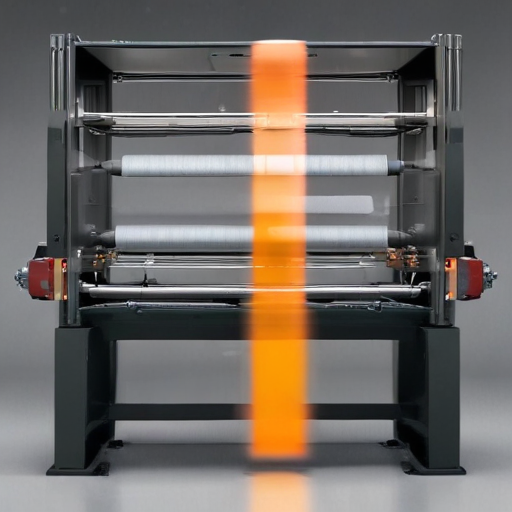
How to use “automated pre roll machine”
Using an automated pre-roll machine simplifies the process of rolling joints and ensures consistency in each product. Here’s a step-by-step guide to using one:
1. Setup: Place the machine on a stable, flat surface. Ensure it is plugged in if it’s an electric model.
2. Prepare the Material: Grind your cannabis to a fine, even consistency. This helps in smooth filling and uniform burning.
3. Load Cones or Papers: Insert pre-rolled cones or rolling papers into the designated slots or chambers of the machine. Ensure they are seated correctly to prevent jamming or misalignment.
4. Fill the Hopper: Pour the ground cannabis into the machine’s hopper. Some machines may have a maximum capacity, so don’t overfill.
5. Adjust Settings: Set the desired weight or volume for each pre-roll if your machine has adjustable settings. This ensures each joint is filled to specification.
6. Start the Machine: Activate the machine, typically by pressing a start button or flipping a switch. The machine will begin dispensing cannabis into each cone or paper.
7. Monitor the Process: Keep an eye on the machine to ensure everything runs smoothly. Address any jams or issues promptly.
8. Final Touches: Once the machine has filled the cones or papers, they may require a light packing at the ends. Some machines include a feature for this, or you may need to do it manually.
9. Collect and Store: Remove the finished pre-rolls and store them in a sealed container to maintain freshness.
10. Clean Up: Clean the machine according to the manufacturer’s instructions after use to ensure longevity and prevent contamination.
Following these steps will help you efficiently use an automated pre-roll machine to produce high-quality, consistent joints.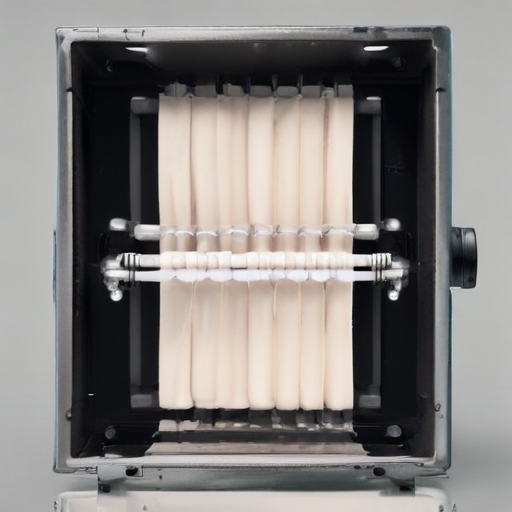
List Properties and Terms of “automated pre roll machine”
An “automated pre-roll machine” is a specialized piece of equipment designed to streamline the production of pre-rolled cannabis joints. It is used in the cannabis industry to enhance efficiency, consistency, and scalability. Below are some properties and terms associated with automated pre-roll machines:
### Properties:
1. Automation: The machine automates the entire pre-roll process, reducing the need for manual labor.
2. Capacity: Machines vary in the number of pre-rolls they can produce per hour, ranging from small-scale units to industrial-scale machines.
3. Consistency: Ensures uniform filling, packing, and rolling of pre-rolls, resulting in a standardized product.
4. Adjustability: Allows for adjustments in fill weight, wrapping tension, and rolling speed to accommodate different specifications.
5. Material Compatibility: Can typically handle various types of rolling papers and filters (crutches).
6. User Interface: Often equipped with digital touchscreens for ease of use and parameter settings.
7. Efficiency: Significantly reduces production time and labor costs.
8. Hopper: A reservoir that holds ground cannabis, facilitating continuous production.
9. Durability: Built with high-quality materials for prolonged usage and minimal maintenance.
10. Compliance: Designed to meet industry regulations and standards, ensuring product safety and quality.
### Terms:
1. Pre-Roll: A pre-made cannabis joint or cone ready for consumption.
2. Cones: Pre-rolled paper cones that are filled and packed with cannabis.
3. Grinder: A subsystem that grinds cannabis to a consistent size for optimal packing.
4. Fill Weight: The amount of cannabis material that each pre-roll contains.
5. Crutch: Also known as a filter or tip; part of the pre-roll that aids in smoking.
6. Rolling Paper: Specialty paper used to encase ground cannabis material.
7. Production Rate: Measurement of how many pre-rolls the machine can produce per unit of time.
8. Dosage Control: The precision with which the machine measures and dispenses cannabis into each pre-roll.
9. Validation: The process of ensuring that the machine operates correctly and consistently produces quality products.
10. Maintenance: Periodic servicing required to ensure consistent operation and longevity of the machine.
These properties and terms collectively describe the function, capabilities, and components of an automated pre-roll machine in the cannabis industry.
List The Evolution history of “automated pre roll machine”
The evolution of automated pre-roll machines has been relatively swift, aligning closely with the legalization and growing popularity of cannabis in various regions globally.
Early 2010s – Manual Labor & Simple Machines:
Initially, the creation of pre-rolls was largely a manual process, requiring significant labor and time. Simple tools like manual rolling machines were used, which offered some efficiency but lacked standardization.
Mid-to-Late 2010s – Semi-Automatic Machines:
As demand surged following legalization in places like Colorado and Washington, businesses began adopting semi-automatic machines. These devices could fill cones with ground cannabis but still required significant human intervention for tasks like weighing, packing, and trimming.
2018-2020 – Fully Automated Systems:
The advent of fully automated pre-roll machines marked a significant technological leap. Machines such as the Futurola Knockbox and the STM RocketBox could produce thousands of uniform pre-rolls daily with minimal human input, handling tasks from filling to packing and even quality control.
2020-Present – Advanced Automation & Customization:
Recent advancements have focused on enhancing precision and customization. Modern machines now offer a range of functionalities like customized dosing, strain-specific settings, and integration with other automated systems for streamlined operations. Innovations in sensor technology, AI, and IoT have further refined the process, allowing for better quality control and higher efficiency.
Future Trends:
Looking forward, we can expect the integration of even more advanced technologies such as machine learning algorithms for quality prediction and blockchain for transparent supply chain management. Sustainability will also become a focal point, with machines designed for minimal waste and energy consumption.
The journey from manual labor to sophisticated automated machines has significantly improved efficiency, product consistency, and overall quality in the cannabis pre-roll industry.
How to Select a Reliable automated pre roll machine
Selecting a reliable automated pre-roll machine is crucial for ensuring consistent production quality and efficiency. Here are key factors to consider:
1. Production Capacity:
Evaluate your production needs. Select a machine that can handle your required volume without compromising quality.
2. Precision and Consistency:
Look for machines known for producing uniform rolls with consistent weight and filling. Precision in these aspects ensures quality and reduces waste.
3. Ease of Use:
User-friendly machines can minimize training time and operational errors. Features like intuitive interfaces and easy maintenance are beneficial.
4. Material Compatibility:
Ensure the machine is designed to handle the specific type of paper and cannabis you use. Some machines may have limitations on the types or sizes of materials they can work with.
5. Durability:
Consider machines made from high-quality, durable materials. A robust machine can withstand heavy use and reduce downtime.
6. Brand Reputation and Reviews:
Research brands and read user reviews. Reliable brands with positive feedback often offer better customer support and product reliability.
7. Automation Features:
Advanced features like automated weighing, filling, and sealing can enhance productivity and ensure consistency in each pre-roll.
8. Service and Support:
Choose a supplier that offers excellent customer service, including technical support and readily available replacement parts.
9. Compliance and Certification:
Ensure the machine complies with local regulations and standards. Certifications can be a good indicator of quality and safety.
10. Cost and Warranty:
Compare prices, but don’t compromise on quality. A good warranty can be an indicator of the manufacturer’s confidence in their product’s durability and performance.
By focusing on these aspects, you can select a reliable automated pre-roll machine that meets your production needs and maintains high-quality standards.
List “automated pre roll machine” FAQ
### Automated Pre Roll Machine FAQ
Q1: What is an automated pre roll machine?
A1: An automated pre roll machine is a device designed to streamline the process of rolling pre-formed cannabis joints, significantly reducing manual labor and ensuring consistent quality and efficiency.
Q2: How does an automated pre roll machine work?
A2: Typically, the machine operates by feeding raw cannabis material into a hopper, where it is ground and distributed into pre-formed paper cones. The machine then packs the material down and seals the joints.
Q3: What are the benefits of using an automated pre roll machine?
A3: Key benefits include increased production speed, consistent product quality, reduced labor costs, and the ability to scale operations efficiently.
Q4: How many joints can an automated pre roll machine produce per hour?
A4: Production rates vary by model, but high-end machines can produce anywhere from a few hundred to over a thousand joints per hour.
Q5: Is the machine easy to clean and maintain?
A5: Most modern machines are designed with user-friendly maintenance in mind, featuring easy-to-remove parts and simple cleaning processes. Regular maintenance is recommended to ensure longevity and consistent performance.
Q6: What types of pre roll cone sizes can be produced?
A6: Many machines offer customizable settings to accommodate various cone sizes, typically ranging from half-gram to one-gram joints, and sometimes even larger sizes.
Q7: Is prior training required to operate the machine?
A7: Basic training is usually provided by the manufacturer to ensure operators understand how to run, maintain, and troubleshoot the machine effectively. The user interface is generally designed to be intuitive.
Q8: What are the power requirements for an automated pre roll machine?
A8: Most machines require a standard electrical outlet, but specific power requirements can vary. It’s essential to check the manufacturer’s specifications.
Q9: Can the machine handle different strains of cannabis?
A9: Yes, the machine can typically handle various strains, provided the cannabis is adequately prepped and ground to the correct consistency.
Q10: What should you consider when buying an automated pre roll machine?
A10: Important factors include production capacity, ease of maintenance, compatibility with different pre roll sizes, cost, and the level of customer support provided by the manufacturer.
Top 10 FAQ with answer about automated pre roll machine for Buyer Sourcing from China
Certainly! Here are the top 10 Frequently Asked Questions (FAQ) with answers about sourcing automated pre-roll machines from China, tailored for potential buyers:
1. What is an automated pre-roll machine?
An automated pre-roll machine is a device used to streamline the process of producing pre-rolled cannabis joints, ensuring consistency, efficiency, and quality.
2. Why source automated pre-roll machines from China?
China offers competitive pricing, a wide variety of manufacturers, and innovations in machinery. Many suppliers provide high-quality products that adhere to international standards.
3. How do I find reliable suppliers?
Use platforms like Alibaba, Made-in-China, and Global Sources. Look for suppliers with high ratings, strong reviews, and verifiable certifications.
4. What certifications should I look for?
Ensure the machine meets CE (Europe), UL (USA), or other relevant certifications based on your region. ISO 9001 certification is also a good indicator of quality management.
5. How do I verify the quality of the machines?
Request product samples, ask for client references, and insist on a detailed demo video. Third-party inspections can also be invaluable.
6. What are the typical lead times?
Lead times vary but typically range from 15 to 45 days, depending on the supplier’s production schedule and customization requirements.
7. Can these machines be customized?
Yes, many suppliers offer customization to meet specific size, capacity, and functionality needs. Communicate your requirements clearly in advance.
8. What is the price range for automated pre-roll machines?
Prices can range from $5,000 to $30,000 or more, depending on the machine’s capabilities, brand, and custom features.
9. How is shipping handled?
Shipping can be arranged via sea, air, or express courier. Ensure the supplier handles proper packaging and provides insurance and tracking information.
10. What about after-sales support?
Check if the supplier offers a warranty, spare parts, and technical support. It’s crucial to have access to customer service for troubleshooting and maintenance.
By addressing these FAQs, buyers can make a more informed decision when sourcing automated pre-roll machines from China.

